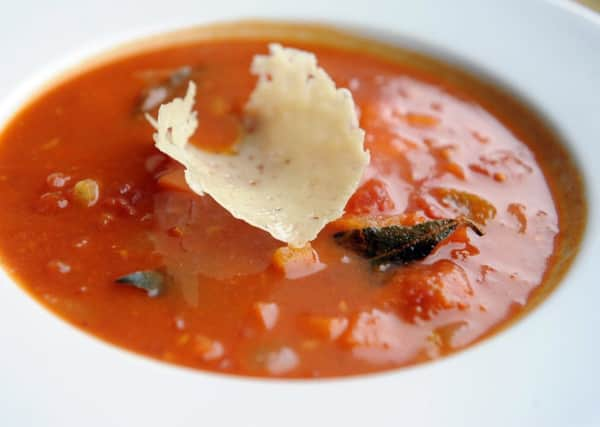No-deal Brexit threatens to food-and-drink boom '“ Stephen Jardine


What are you going to miss most from the menu after March? Maybe ripe French brie, or mature Parmesan, or olive oil or your favourite Belgian beer or a nice bottle of Pinot Grigio?
If a hard Brexit becomes reality in just ten weeks’ time, these items and many others are likely to be harder to obtain or more expensive as tariffs and import delays take the place of the free trade we’ve enjoyed with the European Union until now. This week, concern that we will crash out of the EU without a trading and customs agreement intensified after Theresa May’s deal was comprehensively defeated in the House of Commons.
Advertisement
Hide AdAdvertisement
Hide AdFor people watching the unfolding chaos, there is very little to be done so, fearful and frustrated, they do what they can do. This week it was reported one in six shoppers have taken matters into their own hands and have started or will soon begin stockpiling food in case certain items run out. Clearly that makes no sense and only exacerbates supply issues but it is hard to be too judgemental when major retailers like Tesco and Marks and Spencer have admitted they are also building up stock levels.
However this isn’t just about our supplies or parma ham and manchego. In time, I’m sure we could all adjust to just eating cured venison and Scottish cheddar but the viability of our businesses producing them is also at risk. With 70 per cent of our food exports – worth over £1 billion a year, going directly to the European Union, a huge amount is at stake. Apart from problems with supply routes to get our products to the market, there is also the issue of who will make those products?
The industry estimates a third of the current labour force across Scotland’s food-and-drink sector come from European Union countries. Research by Skills Development Scotland suggests an extra 27,000 jobs in the industry will need to be filled by 2022, but if a weak pound or perceived Brexit hostility reduces the number of EU workers here, how do we hope to fill the extra openings?
It’s no exaggeration to say food and drink has been enjoying a boom in Scotland over the past decade. While a hard Brexit won’t mean bust, it will throw on the brakes and seriously hamper the ambition to double the industry’s turnover by 2030. Best estimates suggest the lost sales following a no-deal departure could total up to £2bn.
Given that, it is no surprise leading industry figures this weekend want MPs to rule out the option. Led by Scotland Food and Drink, organisations representing some of our biggest companies have sent a letter warning that leaving with no deal would have a “potentially catastrophic impact”.
They are right to intervene. There is a cacophony around Brexit right now but this is definitely the time to listen to the experts. Food and drink has been our greatest economic success story in recent years, filling the gaps where other sectors have declined. That is now in jeopardy. Arguments surround how different variations of a deal could benefit or hamper Scotland but no deal is different. With it there are no winners so stopping it has to be the top priority.
